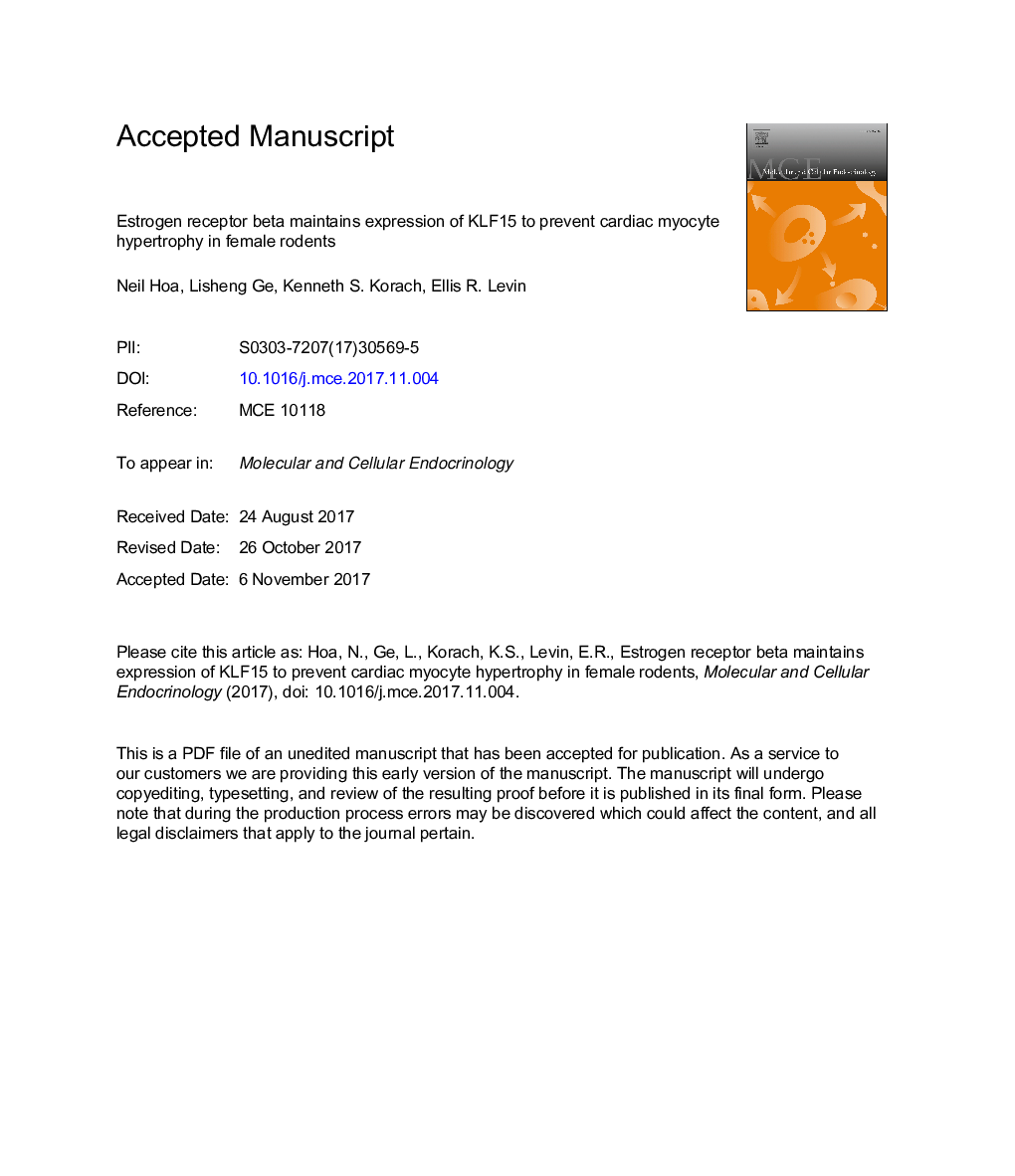| Article ID | Journal | Published Year | Pages | File Type |
|---|---|---|---|---|
| 8476416 | Molecular and Cellular Endocrinology | 2018 | 38 Pages |
Abstract
Maintaining a healthy, anti-hypertrophic state in the heart prevents progression to cardiac failure. In humans, angiotensin II (AngII) indirectly and directly stimulates hypertrophy and progression, while estrogens acting through estrogen receptor beta (ERβ) inhibit these AngII actions. The KLF15 transcription factor has been purported to provide anti-hypertrophic action. In cultured neonatal rat cardiomyocytes, we found AngII inhibited KLF1 expression and nuclear localization, substantially prevented by estradiol (E2) or β-LGND2 (β-LGND2), an ERβ agonist. AngII stimulation of transforming growth factor beta expression in the myocytes activated p38α kinase via TAK1 kinase, inhibiting KLF15 expression. All was comparably reduced by E2 or β-LGND2. Knockdown of KLF15 in the myocytes induced myocyte hypertrophy and limited the anti-hypertrophic actions of E2 and β-LGND2. Key aspects were confirmed in an in-vivo model of cardiac hypertrophy. Our findings define additional anti-hypertrophic effects of ERβ supporting testing specific receptor agonists in humans to prevent progression of cardiac disease.
Related Topics
Life Sciences
Biochemistry, Genetics and Molecular Biology
Cell Biology
Authors
Neil Hoa, Lisheng Ge, Kenneth S. Korach, Ellis R. Levin,
